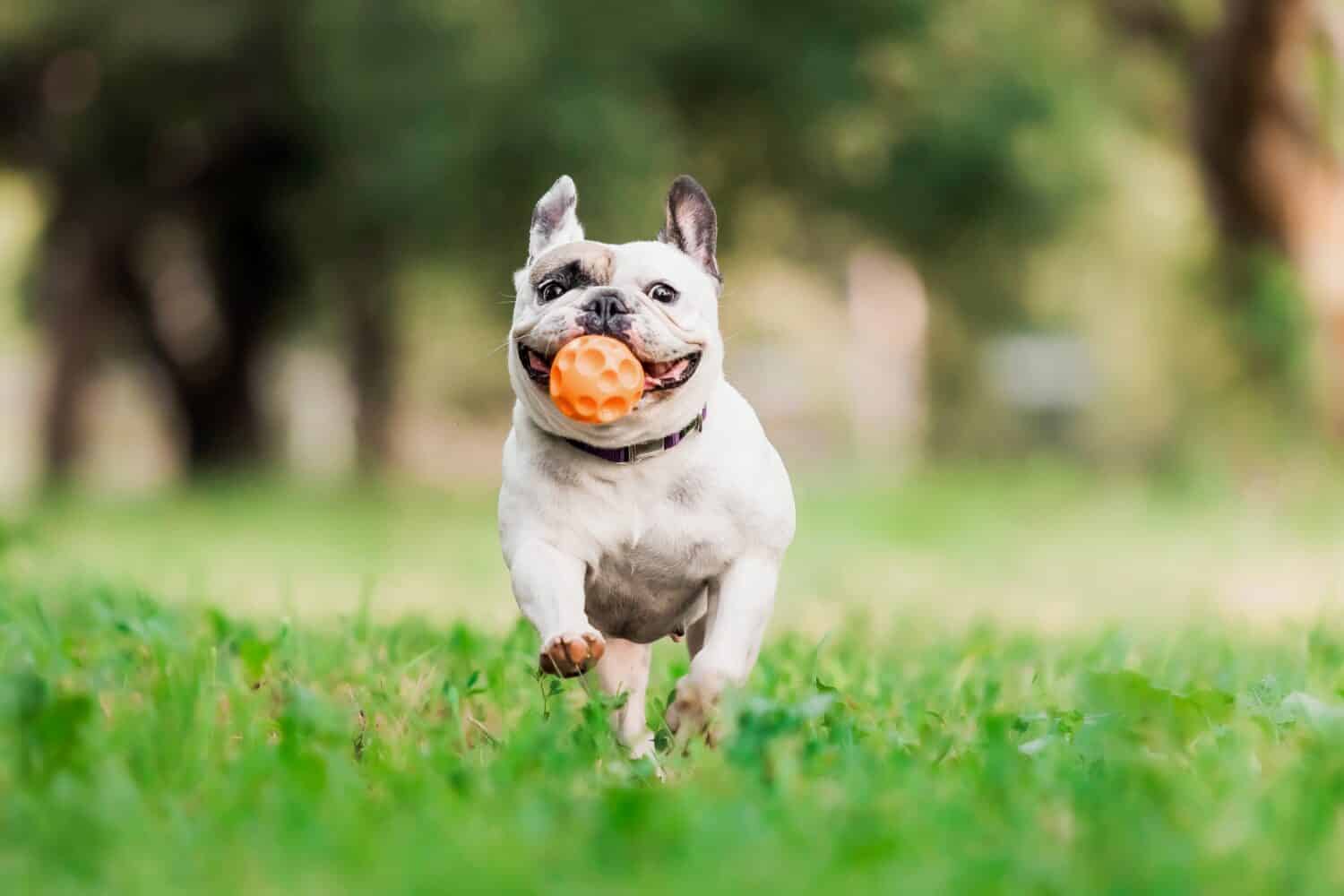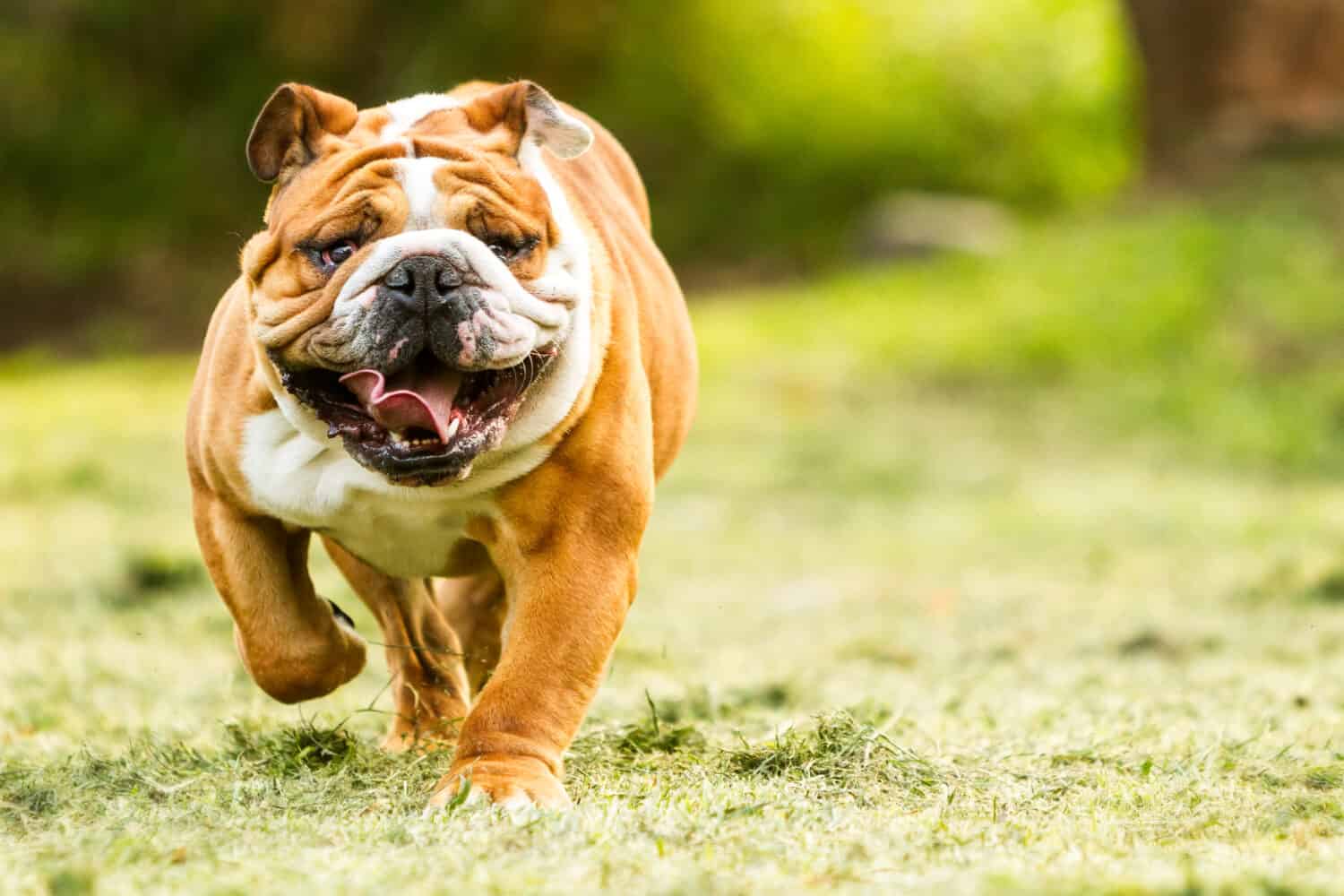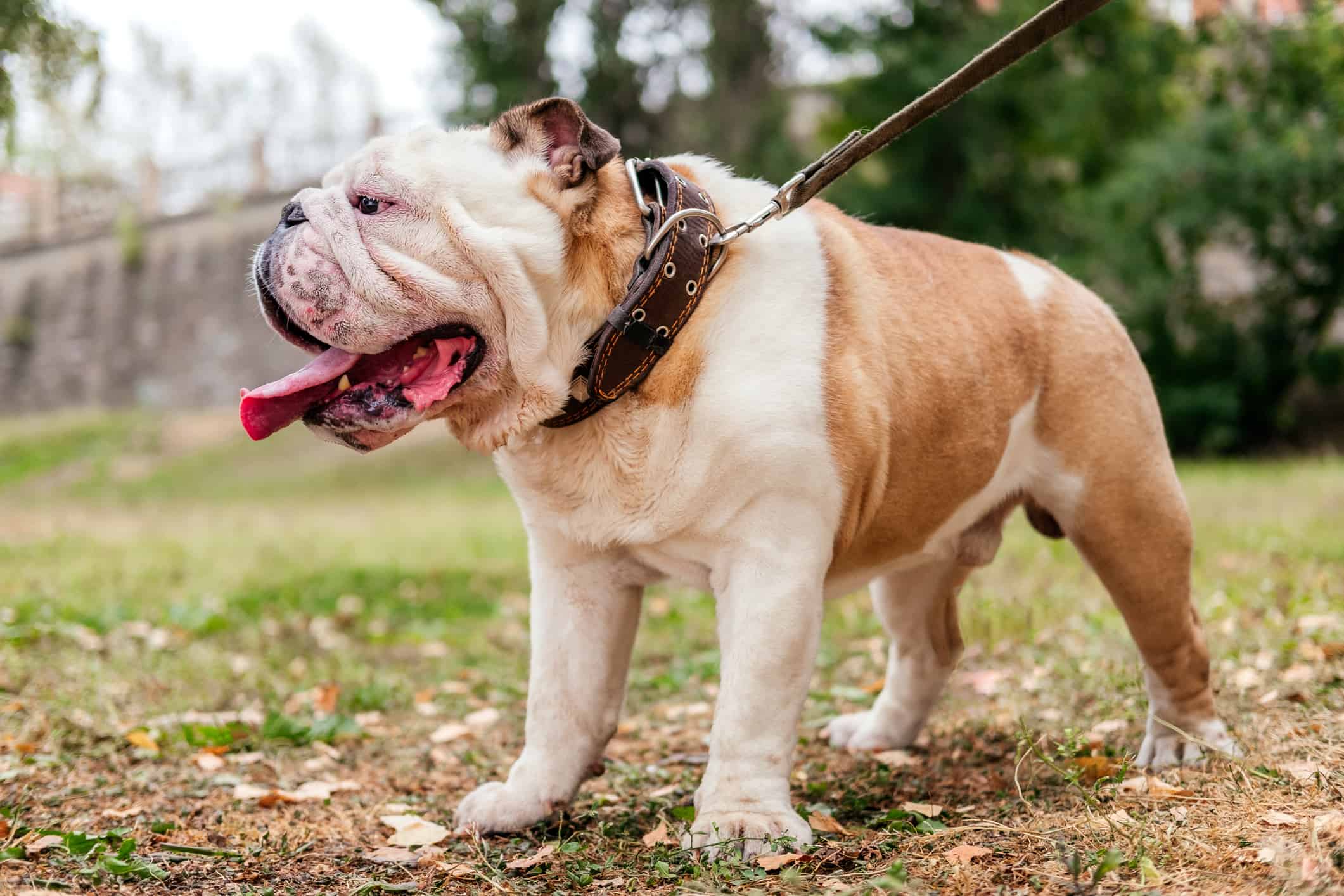If you have small children and are thinking about getting a pet, you may be asking if bulldogs get along well with young children. The good news is that bulldogs can get along well with children because of their sweet disposition and love of games!
Learn more about bulldogs and why they make wonderful family pets in this article. We'll also go over things to think about if you want this breed of dog to be a family companion. The post also lists actions and precautions you may take to ensure that your children and bulldog coexist together peacefully.
Are Bulldogs Good With Kids?
Yes, bulldogs get along well with children! They are the most devoted animals you will encounter. Despite their incredible size and appearance, bulldog breeds are typically well-liked for having gentle personalities. Bulldogs make wonderful family pets because of their even-tempered and adoring nature.
They are renowned for being the caretaker dog and are peaceful and patient with small children. Bulldogs are always on guard, unwavering, and protective of their family.

Bulldogs are notoriously good family dogs.
©OlgaOvcharenko/Shutterstock.com
There are a few important things to think about as a prospective dog parent before making a final decision:
- Why is bulldog socialization important?
- What age are your children?
- What bulldog breed is ideal for a family with children?
- The cost of keeping a dog
It's crucial to concentrate on both the needs of your family and your dog because your new Bulldog will end up being crucial for it.
What Bulldog Breed Is Ideal for a Family With Children?
The popular pets we know and love today are descendants of earlier dog breeds. Breeders may prioritize traits like hunting prowess, physical appearance, and personality. Bulldogs come in a wide variety of breeds and sizes.
Certain characteristics are common to all bulldog breeds. You will find that these qualities include:
- Brachycephalic refers to a shorter head body type: smushed face and a short snout
- Wrinkled/creased skin
- Massive head
The most well-known bulldog breeds are still the English, French, and American varieties. An American Bulldog should weigh between 60 and 130 pounds, although English Bulldogs typically weigh 45 to 55 pounds. The average French Bulldog weighs between 16 and 28 pounds.
Compared to French or English Bulldogs, an American Bulldog occupies more room. Around young children, a French or English bulldog might make a better companion. Additionally, English Bulldogs appear to be more composed as adults than other bulldogs. They can appear very huge and thick despite having shorter legs. They still have the ability to playfully knock over a little infant or toddler. Always remember that any size or breed of dog needs proper training.
Bulldog Temperament and Personality
Bulldogs are kind and have beautiful laid-back personalities; the breed is appreciated more for its temperament than for its brains. Bulldogs are known to be a stubborn breed, and owners frequently report that their dogs may hesitate before reacting to requests. Maybe to consider what they stand to gain from the command?
You should choose a dog that you feel comfortable having near your child, if you have young children, in order to prepare for the scenario. Teaching a large dog to behave correctly around young children requires extensive training. Bully breeds can also exhibit stubbornness.
Aside from their stubbornness, bulldogs are sociable, kind, and gentle and make wonderful family pets and companions. Just make sure to give these couch potatoes enough exercise to prevent weight gain. These laid-back dogs are more than happy to unwind on the couch and adapt well to apartment living and smaller spaces.
Training Tips
Given that bulldogs are not a breed that is known for intelligence, it is more likely than not that your dog will only learn the most basic obedience commands.
It will take time to train your bulldog because the breed is known for its stubbornness. You might have to repeat your commands several times before your bulldog finally responds.
Bulldogs enjoy engaging, succinct training sessions that include lots of praise.
Keeping Your Bulldog Happy
Bulldogs are brachycephalic breeds, which means that their snouts are short. This may mean that they are prone to overheating, especially during the scorching summer. Make sure your bulldog has easy access to water and shady areas where it can escape the heat.
Bulldogs prefer a quiet and laid-back lifestyle and are content to spend the day snoozing. They are laid-back and readily delighted. Make sure your dog exercises enough to avoid unhealthy weight gain.
Exercise
Bulldogs require only about 30 minutes of exercise every day and are low maintenance in this regard. To avoid becoming too exhausted, divide walks into two 15-minute intervals. Bulldogs cannot exercise too much at once and must stay inside on warm days.
While it's important to exercise every day, you should try to keep your bulldog from becoming overly excited or hot. Your entire family must become familiar with the symptoms of an overheated bulldog so that they can react quickly if your dog is not well. If it gets bad enough, this condition could be fatal.
Bulldogs aren't naturally good swimmers, unlike some dogs, so keep them out of the water.

Bulldogs only require about 30 minutes of exercise each day — perfect for a family walk.
©Ammit Jack/Shutterstock.com
Fun Game Ideas
A game of tug-of-war (using a rope toy safe for dogs) will be just up your pet's alley and won't require too much running about because bulldogs are very strong.
Your Children's Age
When settling on a family dog, keep your children's ages in mind as well. Dogs can engage in rough play with both canine and human opponents. Baby gates and a crate should be bought if you intend to have a high-energy dog so you can separate the dog and child as needed.
Consider your children's routine and degree of activity. To allow a puppy to use the bathroom outside, you must get home on time. A young puppy may also require you to get up in the middle of the night to take it potty. Consider getting a dog that is older than a puppy if you spend a lot of time away from home attending your children's extracurricular activities.
Additionally, older children might be able to contribute more to dog chores. When the entire family gets involved in the journey, a bulldog can be much simpler to deal with. Having puppies and young children at the same time is a lot of fun since many people enjoy the chaos of a busy home.
Bulldog Training Advice
You can use the same training methods that you used before if you have previously welcomed other puppies into your home.
Here are some fundamental guidelines you may follow to successfully teach a bulldog puppy and make them best buddies with your children:
- As the puppy's owner, you get to decide on the rules, so establish them early. But be sure to set the ground rules up front and adhere to them. This keeps your puppy from becoming confused and guarantees that they act in the manner you would like.
- Make yourself the boss; otherwise, the puppy will think they are, which will cause problems. Make sure the puppy obeys your commands and is never allowed free rein of the house.
- Start early with the training – You should begin the training as soon as you get the puppy home. To make sure they understand who is in charge and how to behave, the earlier the better.
- Use constructive criticism – Teach your kids that the puppy will learn what is expected of them with the use of positive reinforcement, such as walks, playtime, praise, and goodies. Compared to other strategies like hitting, it is far more successful.
- Never hit a dog – Doing so can make them more aggressive at any age, and it won't help you achieve your goals.
- Never let the puppy lead the way on a walk, and never use a leash that is too tight. Instead, walk with the puppy in front of or behind you.
- The puppy should eat when you do, but you should always eat first. Never let the puppy eat whenever they want by leaving the food out on the floor.
- Treats are excellent for trick training – You can teach your puppy simple commands more quickly by providing treats and lots of praise. After giving your puppy a one-word order, you may gradually stop using rewards and only use praise, and your puppy will still comply.
- Think about crate training. It enables your puppy to have a personal space in the house to call their own. They can go here whenever they feel frightened. When your children are in school or you must be gone all day for work, it is also a great way to keep them in one spot for longer.
Trained bulldogs are easier to live with, especially if you have kids in the house. Establishing these simple ground rules for your bulldog to follow makes the interaction between your kids and the bulldog easy and fun.
Advice for Living with Bulldogs and Children
When your bulldog and child are together, someone must be watching them at all times. In particular, never leave a child or infant unattended in a room with a dog. Learn the signs of an upset dog's body language and behavior. By listening to your dog's cues and giving them space when they request it, you can avoid accidents.
Establish appropriate guidelines and rules for how to interact with the family bulldog if your child is old enough. Here are some tips for parenting your children while having a family bulldog. However, you might need to take a few extra precautions if you have young children in your home:
- Children should respect the bulldog's personal space. Children should handle the dog gently (in the dog's bed, crate, or enclosure).
- When the bulldog is sleeping, children should give it time to rest.
- Children shouldn't interfere with the bulldog's mealtime.
- Teach your kids to respect dogs. Do not at any time let your child pull on the dog. The tail, neck, and face are key focus areas. They should refrain from chasing after a dog that is still being trained. Dogs that are playing may chase a child who is running. Collisions without purpose may result from this. While sitting on a dog may appear adorable in photos, doing so can hurt the animal or make it bite your little one.
- Teach your kids how to spot a dog in trouble. Dogs typically exhibit warning signs before biting. They might snarl, flash their teeth, or attempt to escape a child's tight grip. Additionally, they frequently “air-snap” before giving a true bite.
The vet must rule out any underlying medical conditions if you notice any hostility or irritation. Until you can arrange a vet visit, keep an agitated pet and your child apart. If the dog is in good health, you might need to consult a trainer to evaluate the problem.
These few guidelines will guarantee that the bulldog has a private space and gets used to your children.
Health Concerns: Can Bulldogs Cause Allergies?
Unfortunately, bulldogs, especially English Bulldogs, are not hypoallergenic, which means that members of your family who have a dog allergy may experience allergic reactions.
The English Bulldog is also known to shed frequently throughout the year, despite not being a major shedder, which emphasizes the importance of giving your dog the right care.
English Bulldogs are famous for drooling as puppies and adults, in addition to their frequent shedding. These popular canine companions are also renowned for often snorting, which makes it simple for them to release allergens from their noses onto furniture and into the air.
Although English Bulldogs have a straight, silky coat, this does not make them immune to allergies. Keep a watchful check on your dog since the distinctive skin folding that distinguishes English Bulldogs can cause dermatitis, muzzle acne, and folliculitis.
Itching and irritation of the skin folds and wrinkles can result in yeast infections and other potentially dangerous diseases. Therefore, seek the advice of a reputable veterinarian for a thorough examination before adding bulldogs to your family permanently.
That's because English bulldogs, despite being adorable (and incredibly addictive), are prone to allergies and are likely to trigger allergic reactions in family members who are sensitive to canines.
Avoid English Bulldogs if you're looking for a hypoallergenic dog breed because they are the most allergic breed there is. If you must bring a dog into your home, think about experimenting with alternative less allergic breeds.
How to Take Care of a Bulldog at Home
Bulldogs do require walking, even though they don't require much of it. Your bulldog will probably decide they want to take a nap after playing for 15 minutes. And who can blame them, to be honest? Bulldogs also require wrinkle cleaning. Thankfully, they mostly find it enjoyable. Every day, wipe your bulldog's skinfolds with a gentle towel dipped in warm water to remove all of the nastiness. They will value it just as much as you do! You can also use baby wipes for this, but make sure they don't include propylene glycol, oils, or scents.
Conclusion
Bulldogs can be wonderful family pets, but you must pick the correct one for your household. Bulldogs can range in temperament from more mellow and gentle to more playful and spirited. When selecting a bulldog, it's critical to take your family's lifestyle and level of energy into account. Additionally, it's crucial to socialize your bulldog with kids from a young age in order to ensure that they feel secure and at ease around children. They might not be as active as other breeds, but they can still give your family a lot of love and attention.
Overall, bulldogs may make fantastic companions for both children and adults with the right training and supervision.
The image featured at the top of this post is ©iStock.com/Verelly
